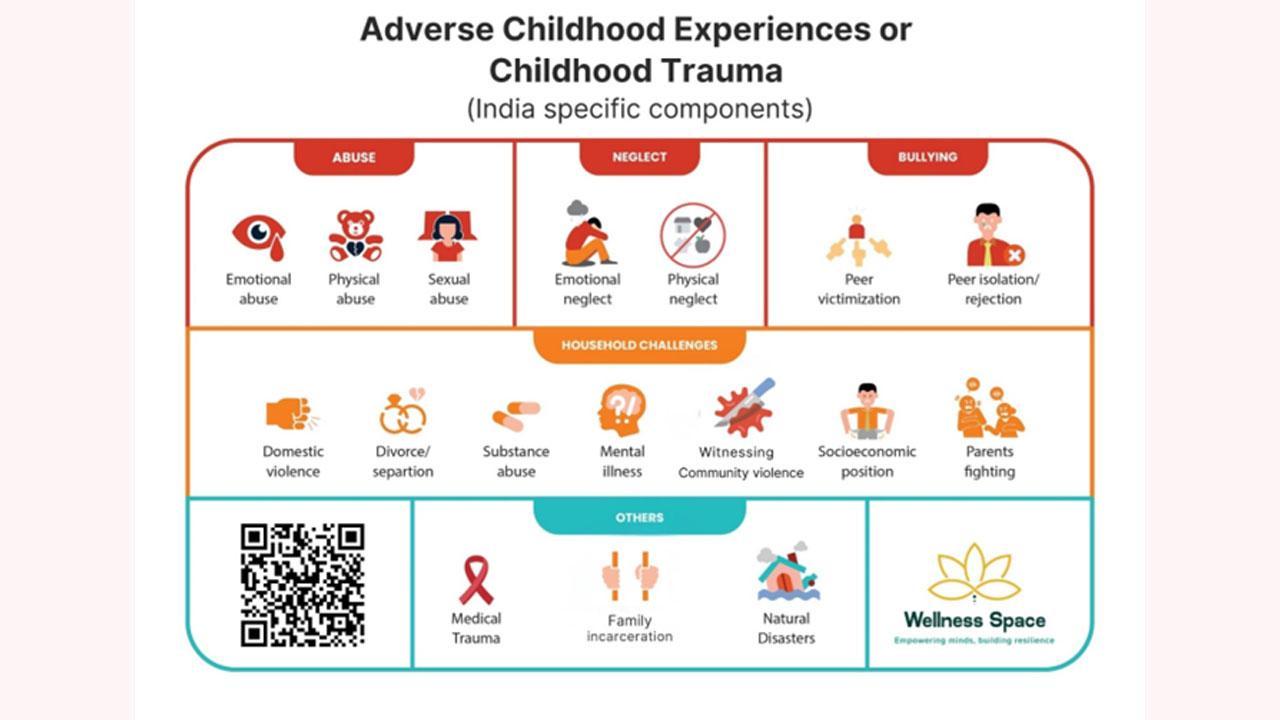Our research shows that adverse childhood experiences are not just personal memories-they are public health indicators that India needs to focus on.

childhood trauma
A team of Indian researchers has published a pioneering study on childhood trauma in the Asian Journal of Psychiatry, validating an expanded 14-item Adverse Childhood Experiences (ACE-14) questionnaire tailored to the Indian population. This marks a significant milestone in India’s mental health landscape and introduces a culturally relevant tool to assess childhood trauma and its long-term consequences.
A team of Indian researchers has published a pioneering study on childhood trauma in the Asian Journal of Psychiatry, validating an expanded 14-item Adverse Childhood Experiences (ACE-14) questionnaire tailored to the Indian population. This marks a significant milestone in India’s mental health landscape and introduces a culturally relevant tool to assess childhood trauma and its long-term consequences.
The study, titled “Psychometric Properties of Expanded Adverse Childhood Experiences Assessment Questionnaire at a Wellness Centre in India,” was authored by Dr. Gunjan Y. Trivedi, Pranjal Surana, Neha Pandya, Nisarg Patel, Riri G. Trivedi, Dr. Soundappan Kathirvel, and Dr. Anita Kumar.
The expanded ACE-14 questionnaire goes beyond the original 10 ACE global categories, incorporating culturally contextual elements such as peer isolation, parental conflict, financial hardship, and bullying-critical factors in the Indian setting that are often overlooked. The study confirms the ACE-14’s strong psychometric validity and its predictive power for mental health outcomes, including depression and anxiety.
“Our research shows that adverse childhood experiences are not just personal memories-they are public health indicators that India needs to focus on.” said lead author Gunjan Y. Trivedi, co-founder of Wellness Space, Ahmedabad. “The ACE-14 is a step toward recognizing how childhood trauma, PTSD (Post Traumatic Stress Disorder), and complex trauma (CPTSD) continue to shape adult mental health in India. It offers a validated and culturally relevant tool that can guide policy decisions, therapeutic practices, and the implementation of trauma-informed care across the country.”
Using evidence-based psychotherapy principles, the research supports the use of trauma-informed case based mental health interventions. The study showed that the ACE-14 significantly predicted both depression and anxiety symptoms, highlighting the importance of early identification of childhood adversity to improve adult mental health outcomes. “Very few mental health practitioners know that childhood trauma increases the risk of depression by 3-5 times, making it a very important risk factor compared to other factors such as genes, lifestyle choices (such as, lack of physical activity, stress, poor sleep). Hence, childhood trauma assessment needs to be the core capability for each mental health practitioner, psychologist and psychiatrist in India.”, added Dr Gunjan.
This groundbreaking work positions India among a growing list of countries investing in localized, research-backed childhood trauma tools. It also calls for the integration of trauma-informed practices in therapy, education, and public health initiatives across the country.
For more information or to access the study, please visit the Asian Journal of Psychiatry (Volume 108, 2025) or contact the authors at info@wellness-space.net. Wellness Space is based in Ahmedabad and provides practical training using evidence-based psychotherapy for psychologists, psychiatrists, and mental health professionals. They also collaborate with experts across the nation to conduct research on mind-body connection (self-hypnosis protocol, Bhramari Pranayama or simple Humming), childhood trauma, and mental health including depression, CPTSD, anxiety, specific phobia.
 Subscribe today by clicking the link and stay updated with the latest news!" Click here!
Subscribe today by clicking the link and stay updated with the latest news!" Click here!














